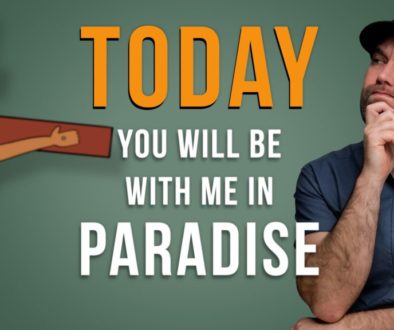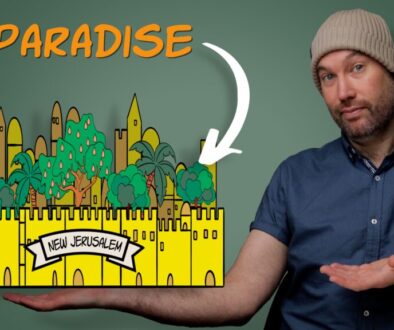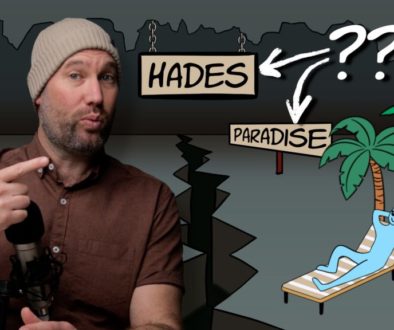Gaping Holes In The Common Story
Is that really in the Story?
When I was a kid we had a copy of the The Ten Commandments, starring Charlton Heston and Yul Brynner, on VHS. I can’t remember how many times I watched it during my childhood, but it was quite a few. I still think it’s the best Exodus movie made to date.
Though it is a movie based on the biblical account of the Exodus, like many other movies of true stories it takes a bit of poetic licence. That’s understandable, and in this case I think fairly harmless. But the thing is, after watching the movie several times I thought I knew the story. And so when I went to read the account in the Bible there were things I expected to find… that I didn’t.
A chunk of the movie involves Moses growing up in Pharaoh’s palace, interacting with his step-brother Ramses and growing into a prince. None of that is in the biblical account. Exodus 2:10 has Moses being taken to Pharaoh’s daughter and becoming her son. The very next verse, Exodus 2:11, begins with, “One day, after Moses had grown up…” and then tells the story of him murdering an Egyptian which leads to him having to flee Egypt. He was about 40 years old at the time.
That’s it. Nothing about Moses’ life in Egypt at all. His first 40 years passed by with barely a reference.
Now, like I said, in this case it’s fairly harmless. The movie writers used other historical information to try to flesh the movie out a bit. But here’s the point: I thought I knew the real story based on the story I was told. But when I went to the Bible, there were things I expected to find that I didn’t. There were things I thought I knew that didn’t come from the Bible at all!
Some of the questions I’ve been asking
The Common Story has done the same thing to us. Except I don’t think it’s as harmless. Here are some questions that I’ve asked of the Common Story after finding something different in the Bible:
- Do Genesis 1 & 2 really cite “relationship with God” as the core purpose for humanity?
- If relationship with God was broken after “the Fall”, and there is a separation between God and humanity, why does Genesis 4 show direct interaction between God and Cain and Abel? Why does Cain complain that his punishment of being sent out of God’s presence is too much to bare?
- If humans became utterly sinful after the Fall, why do Jesus, John and the writer of Hebrews all call Abel, one of the first “fallen” humans, righteous?
- The Common Story jumps pretty much straight from the Fall to the cross. What the heck is the rest of the Old Testament for? Is it really just to show Jesus’ family history, and that people always fail and are in desperate need of a saviour? Really? That’s what 3/4 of the Bible is for?
- If the gospel is the good news of Jesus’ death for sins, how did Jesus preach the gospel before he died? And why, when he talks about salvation, does he not mention anything about his upcoming death for sins but instead talks about behaviour?
- Why did the apostles in the book of Acts not preach the same message we do?
Those are a few teasers, just a taste of what I’ll be delving into in this blog. Hopefully those questions didn’t break your brain. That last one is what started me on this journey. I wanted to learn how to “do evangelism” well, so I read through Acts to see how the apostles did it. And what I found was that the message they preached wasn’t the one I expected.
If you’re feeling uncomfortable with those questions that’s ok. The Christian environment, for many of us, has often been fairly closed to the asking of difficult questions. The heresy police quickly jump on anything that doesn’t conform to the dominant paradigm.
And heresy is of course a real issue, but how do we judge it? What is our frame of reference? Is it the Bible? Or is it our traditions and doctrines? I contend that all the questions I’ve asked are legitimately presented by an unfiltered reading of the Bible.
In his book The Unseen Realm, Dr Michael Heiser says:
“Our traditions, however honourable, are not intrinsic to the Bible. They are systems we invent to organize the Bible. They are artificial. They are filters.
…there is a pervasive tendency in the believing Church to filter the Bible through creeds, confessions, and denominational preferences.”
What’s been cut out?
Thomas Jefferson, an early President of the United States, famously worked on his own version of the Bible. He literally took a razor and cut parts of the Bible out, only keeping the bits he thought should be there. I believe the Common Story does the same thing. It doesn’t physically cut parts of the Bible out, but it filters them out. It causes us to gloss over or write off huge parts of the Story because they don’t fit neatly with our traditions and doctrines.
And one of the major components the Common Story cuts out is our participation. The Common Story portrays humans as largely passive. Our purpose is just to be in some generic “relationship” with God. That “relationship” was broken, and God’s plan is to restore it. By paying for our sin. So now we can, you guessed it, be “in relationship” with God again. In some sense that’s true, but like I said in my last post, it’s not true enough.
God has a big project that He’s working on and we are key players. Our participation is vital. But proponents of the Common Story want to minimise our participation. We’ve somehow got the idea that for God to be glorified we have to be as inferior as possible. Passive. A damsel in distress, utterly helpless, so the hero can shine.
God doesn’t need us to be passive so that He can look stronger. He doesn’t want us to be.
The Story that the Bible tells is highly participatory. But we’ve filtered so much of it out that modern Christianity has become largely passive. Our Story is passive. Our Shape is passive. We’ve got a flat pancake instead of a rich black forest cake.
No wonder so much of our sense of adventure is gone.


